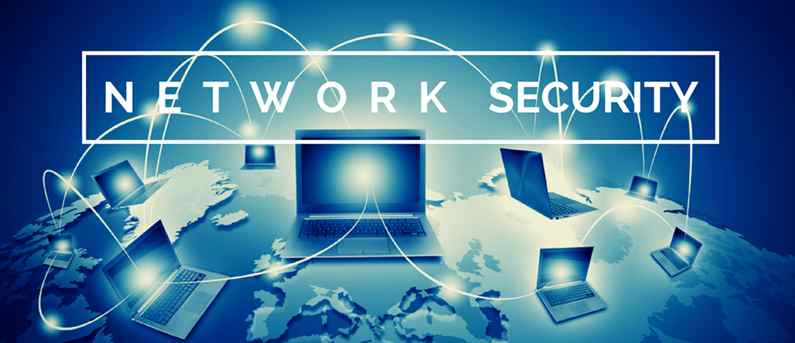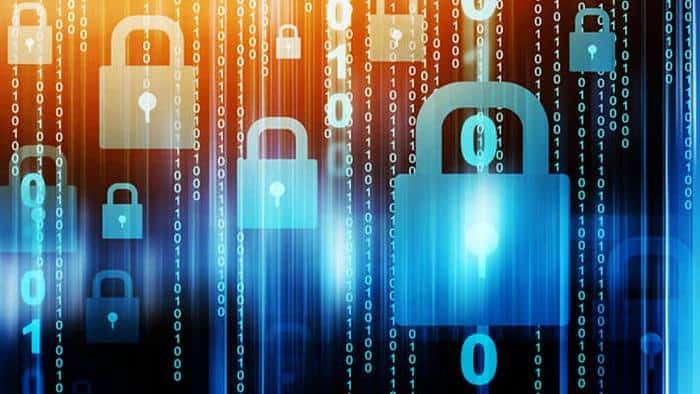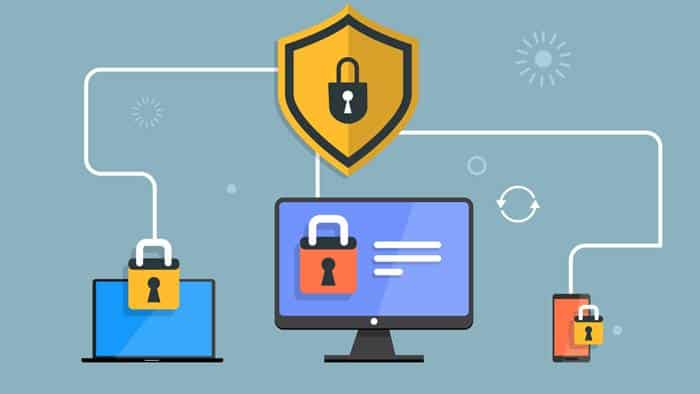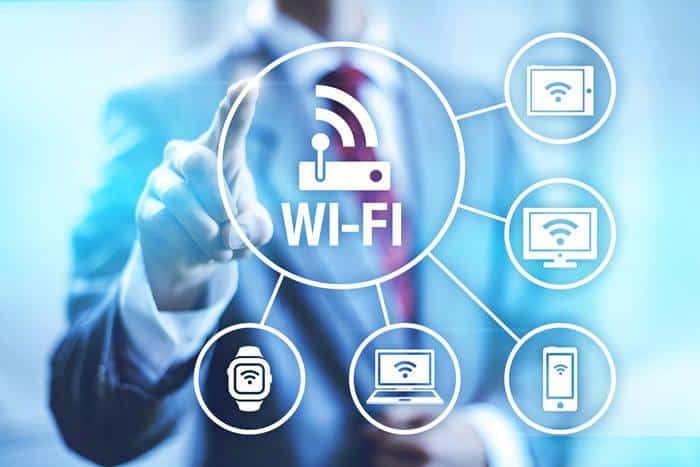The Home Network Security Handbook: Understanding and Securing Your Network

"Imagine a scenario in which your private information is floating aimlessly on the internet, accessible to dangerous individuals. Scary, huh? But hold on, this tale has a hero: Home Network Security!
Your devices and networks at home are safeguarded by this dependable companion, keeping your data and online activities safe.
With powerful tools like firewalls, encryption, and strong passwords,
Home Network Security defends against online threats like malware and hackers. And like any good superhero, it is constantly on guard and prepared to save the day.
So why wait till something bad happens? With Home Network Security on your side, give your home network the defense it needs and live a secure online existence!"
Importance of Home Network Security
"Securing your home network is now essential to preserving the privacy and security of your financial and personal data in today's age of increased connectivity.
It is crucial to take preventative actions to safeguard against potential cyber risks given the expanding number of connected gadgets in households.
A secure home network can lower your risk of identity theft, stop unauthorized access to critical information, and protect your online assets.
You can make sure that your home network is secure by using strong passwords, turning on firewalls, and maintaining your software updates.
Don't rely on chance to ensure the security of your money and personal data. Take the essential actions to safeguard your home network right away."
Common Home Network Security Threats
Home networks are increasingly being targeted by cybercriminals, so it's essential to be aware of the typical dangers to your internet security.
Malware, phishing schemes, insecure Wi-Fi networks, and weak passwords are some of the most frequent risks to home networks.
While phishing scams utilize bogus emails or websites to lure people into disclosing important information, malware infects devices and can steal personal information.
Your devices are vulnerable to hacking when connected to insecure Wi-Fi networks, including public Wi-Fi, and weak passwords are simple for fraudsters to guess.
Use strong, one-of-a-kind passwords, routinely update your software, and think about utilizing a virtual private network (VPN) when connecting to public Wi-Fi to safeguard your home network.
Take proactive measures to protect your home network from these typical dangers by always being aware and being prepared.
- Hacking
Home networks are becoming increasingly exposed to security threats, and it is critical to be aware of these dangers in order to safeguard your sensitive data.
Hacking, which refers to illegal access to a computer or network, is one of the most common risks.
Hackers can compromise your network's security by exploiting software weaknesses, deploying malware, or guessing your password.
They can steal sensitive information such as bank data, personal identities, and confidential documents once they gain access.
To avoid hacking, use strong passwords, maintain up-to-date software, and use a reliable antivirus and firewall package.
Furthermore, backing up your data on a regular basis helps safeguard you from data loss in the event of a security breach.
Stay cautious and secure by learning typical home network security dangers, such as hacking.
- Malware and Viruses
It's the digital age, and your home network serves as a technological hub.
But, did you know that hostile creatures hide in the shadows of the internet, waiting for the appropriate opportunity to strike? Yes, we are discussing malware and viruses!
These malicious players are the misery of any home network and, if left uncontrolled, may create big issues.
Malware and viruses can disrupt your digital life by stealing personal information or corrupting your data.
Don't allow them to destabilize your home network! Keep up with the latest security dangers and how to defend yourself.
You can maintain your network safe and secure with the correct information and tools, and enjoy the benefits of the digital world without stress.
- Phishing Scams
A home network that is connected to the internet is becoming a requirement for many houses in the modern digital age.
The possible security risks associated with this convenience, however, include the theft of personal data, the compromise of sensitive information, and damage to linked devices.
Phishing schemes are one of the most frequent risks to the security of home networks.
To fool people into disclosing personal information like passwords and credit card details, many scams use deceptive emails, SMS messages, or bogus websites.
It's crucial to be wary of unexpected or unsolicited contacts and to double-check the legitimacy of the sender and the website before entering any personal information if you want to safeguard yourself against phishing scams.
Take proactive steps to protect your home network against these and other security risks by staying aware and educated on the most recent phishing techniques.
- Unsecured Wi-Fi Networks
One of the main sources of security risks in the home is unsecured Wi-Fi networks.
Protecting your home network from possible hackers is essential as more and more household devices connect to the internet.
Unsecured Wi-Fi networks are susceptible to cyber-attacks, making it possible for criminals to access and take your sensitive data.
Unsecured networks put your entire digital life at risk, from your banking information being compromised to others listening in on your private conversations.
Don't hold off till there is a breach. Put strong passwords and trustworthy encryption in place right now to protect your family and valuables from online crooks.
Although securing your home network is easy and basic, the repercussions of skipping this step can be serious.
Don't take a chance; start today by protecting your Wi-Fi network!
- IoT Device Vulnerabilities
The threat to home networks has considerably increased in today's environment where everything from security systems to home appliances is online.
The vulnerabilities of IoT (Internet of Things) devices are among the major security worries.
Cybercriminals can easily use these devices to access your network and sensitive information thanks to obsolete software and weak passwords.
Keep up with the most recent home network security risks and take preventative steps to secure your IoT devices if you want to stay safe.
Don't put off securing your home network until it is too late! To protect your sensitive information and personal data from potential dangers, invest in strong passwords, frequent software updates, and secure networks.
- Remote Access Threats
"Are you properly safeguarding your home network? The unfortunate reality is that fraudsters are continually devising new methods to access your network and steal important data.
"Remote access threats" are among the most worrisome threats. These hazardous individuals can access your network from anywhere in the world, putting your personal and financial information at risk.
But don't be concerned; there is something you can do! You can considerably reduce the likelihood of a remote access breach by taking the essential safeguards.
So, why delay? Invest in safeguarding your home network today to protect your digital life!"
- Insider Threats
Home networks are the foundation of our digital existence, linking us to the internet and granting us access to sensitive data.
But did you realize that the most serious security danger to your home network could come from within? Insider threats, whether intentional or unintentional, can inflict irreversible damage to the security of your network.
The threat is real and present, from angry employees with access to critical information to curious children clicking on malicious websites.
Don't put off taking measures to protect your network from insider attacks until it's too late.
To be safe, educate your family members, use strong passwords, and keep your network's security software up to date.
15 Best Practices for Securing Your Home Network
1. Use Strong and Unique Passwords for all Devices and Accounts
Do you worry about who might gain access to your private network at home?
The importance of safeguarding sensitive data grows in tandem with the prevalence of internet-connected gadgets.
Using complex and different passwords for each of your devices and accounts is a great way to increase the safety of your home network.
This easy measure will greatly lessen the possibility of hackers gaining access to your system.
Passwords' strength depends on their complexity, therefore use a mix of upper and lowercase letters, digits, and symbols.
It's also a bad idea to use obvious details like a person's birthday or a pet's name as a password.
You can safeguard your online identity by following this recommendation and taking further measures to secure your home network.
2. Secure Your Wi-Fi Network
With more and more devices connecting to the internet, it's critical to safeguard your network from cyber threats.
A hacked Wi-Fi network can lead to the theft of critical information, illegal access to your devices, and even financial loss.
As a result, it is critical to take the required precautions to secure your Wi-Fi network.
We will explore best practices for safeguarding your home network in this blog article, such as changing default passwords, enabling encryption, and choosing a secure network name.
You can safeguard your personal information, gadgets, and finances from fraudsters by taking these easy yet effective procedures.
Don't leave your Wi-Fi security to chance; take charge and safeguard your network immediately.
3. Use a Virtual Private Network (VPN)
It's time to use the power of a virtual private network if you want to keep your home network safe (VPN).
A VPN shields your online activities from prying eyes like an additional layer of security, or a cloak of invisibility if you will.
A VPN makes it nearly difficult for hackers and other harmful organizations to access your important information by encrypting your internet connection and diverting it through a secure server.
So, if you want to stay one step ahead of the cyber bad guys, one of your best practices for protecting your home network is to use a VPN.
You may relax knowing that your online identity is concealed using a VPN.
4. Keep all Software and Systems Updated
In the modern digital world, where cyber dangers are continuously changing, maintaining the security of your home network is essential.
Keeping all software and systems updated is one of the best ways to guarantee the security of your home network.
Your operating system, web browsers, antivirus program, and other programs you use are all included in this.
It is crucial to stay up to date since frequent software upgrades frequently include crucial security patches that fix vulnerabilities that have been found.
You can dramatically lower the danger of cyber threats, including malware infections, hacking, and phishing scams, from compromising your sensitive information by keeping your software and systems updated.
To guarantee the security of your complete home network, keep in mind to update all connected devices, including smartphones, smart home gadgets, and gaming consoles.
5. Use Anti-Virus and Anti-Malware Software
In the digital age of today, securing your home network is essential.
Protecting your gadgets and personal information should be a top priority given the increase in cyber threats.
The first step in network security is to use antivirus and anti-malware software.
These applications are made to guard your devices against harmful software that could steal your confidential data, corrupt your files, or even take over your computer.
You may stay one step ahead of fraudsters and maintain the security of your network by installing anti-virus and anti-malware software.
Therefore, protect yourself and your family now by using antivirus and anti-malware software rather than waiting until it is too late.
6. Enable Firewalls on all Devices
Installing firewalls on all devices is one of the most effective actions you can do to secure your home network.
Firewalls are the first line of security against cyber dangers like viruses, hackers, and illegal access.
You may protect your personal information and safeguard against potential security breaches by enabling a firewall on each device that connects to your network.
Furthermore, setting firewalls on all devices, not just your primary router, ensures that your entire network, not just the main gateway, is secure.
This tiered method provides numerous layers of security, making it considerably more difficult for hackers to breach your network.
Finally, setting firewalls on all devices is a must-do step in securing your home network.
Don't wait for an assault to happen; take the essential safeguards immediately to protect your digital life.
7. Enable WPA3 encryption on your Wi-Fi network
You can implement several recommended procedures to safeguard your personal data and online activities by safeguarding your home network.
Enabling WPA3 encryption on your WiFi network is one of the most important actions you can do. Protect your network from intruders and malicious hacking attempts with this cutting-edge encryption standard.
You can feel safe transmitting important information over the network, such as login credentials and financial information when WPA3 is enabled.
With WPA3, it is more difficult for hackers to break into your network via a brute-force attack. If you follow this easy instruction, you will have taken a significant step toward protecting your home network and the information stored on it.
Enabling WPA3 encryption on your WiFi network is one of the most important actions you can do.
8. Limit Access to Your Network by Using MAC Address Filtering
Do you fear for the safety of your personal network at home?
Don't worry, just use some MAC magic! Use MAC address filtering to control who can connect to your network and see how quickly and easily your system becomes impenetrable.
You may prevent intruders and protect your network's integrity by accepting connections from only authorized devices using a whitelist of MAC addresses.
But not only that, you can be assured that no one else can access your private data or gadgets.
Get ready to say goodbye to network security issues and welcome to a trouble-free system. Put MAC address filtering to work for you right now!
9. Use a Separate Network for IoT Devices
To safeguard oneself from online threats and potential data breaches in today's networked world, it is essential to secure your home network.
Utilizing a different network for IoT (Internet of Things) devices is one of the greatest strategies for securing your home network.
This straightforward action can significantly reduce the likelihood of unauthorized access to your sensitive data and personal information.
You may isolate your smart devices from your main network and lessen the possibility of vulnerabilities by setting up a different network for them.
By doing this, your primary network will remain secure even if one or more of your IoT devices is compromised.
Take the required actions to safeguard your home network right away; don't wait for a security breach to occur.
To start safeguarding your online presence, choose a different network for your IoT devices.
10. Consider Using a VPN for IoT Devices
Securing your home network is now more essential than ever in our connected society.
IoT devices are becoming more prevalent in homes, which has significantly increased the risk of cyberattacks.
It's critical to put best practices for safeguarding your home network into action if you want to keep your sensitive data and personal information safe.
Consider employing a VPN (Virtual Private Network) for IoT devices as one practical solution.
A VPN can add an extra degree of security against hacking, espionage, and other cyber assaults by encrypting the internet traffic of your IoT devices.
A VPN for IoT devices can also assist in preventing harmful websites from accessing the data on your device.
Consider using a VPN for IoT devices today to protect your home network instead of waiting until it's too late.
11. Disable UPnP (Universal Plug and Play)
A protocol known as UPnP is one that enables devices to effortlessly connect with one another and locate services that are available on a network.
Despite the fact that this may be easy, it also leaves your network open to the risk of being attacked by malicious software.
You may make your home network more secure and lower the attack surface by turning off UPnP, which stands for the Universal Plug and Play protocol.
It is crucial to keep in mind that disabling UPnP may have an effect on the functionality of some devices before making any changes since it is important to evaluate the pros and cons of each option.
Disabling UPnP, on the other hand, is an essential step in the process of securing a home network for people who place a high priority on safety.
12. Disable Unnecessary Features and Connectivity on IoT Devices
How concerned are you with keeping your home network as safe as Fort Knox?
When you're ready to take a hard stance against cyber dangers, turning off unused functions and connections on your IoT gadgets is a good place to start.
Remove any security flaws that could expose your online life by giving your network a spring cleaning in the digital sense.
You won't have to lose any more sleep over the prospect of a hacker gaining unauthorized access to sensitive information through some sort of digital backdoor.
Disabling unwanted features and connections provides your network with an additional layer of defense against cyber threats.
Your home network's safety relies on you, so whip out your proverbial virtual broom and start cleaning!
13. Disable Remote Access When Not Needed
In the current digital era, securing your home network is essential. Take the necessary actions to secure your network given the rising number of connected devices and the volume of private and sensitive data being kept online.
Disabling remote access when not needed is one of the best ways to secure your home network.
By taking this easy precaution, you can keep unwanted users from using your network and its resources.
By blocking remote access, you lower the number of possible entry points for attackers and the likelihood of data breaches and other cyberattacks.
To protect your network and the sensitive data it holds, make sure to stop remote access if you aren't utilizing it.
Always remember that it's better to be cautious than sorry!
14. Enable Two-Factor Authentication for Online Accounts
You must follow the best practices for network security if you want to keep your personal information secure.
The practice of setting two-factor authentication for online accounts is one that is becoming more and more widespread.
By requiring both a password and another form of verification, like a number delivered to your phone, two-factor authentication adds an extra layer of security.
This creates an additional barrier to prevent hackers from stealing your passwords.
You may relax knowing that your online accounts are secure if two-factor authentication is set.
15. Educate Family Members on Safe Online Practices
It is necessary to take precautions to ensure your network and personal data as the number of devices and family members reliant on the internet for communication, entertainment, and business grows.
Educating family members on how to stay safe online is a crucial step in safeguarding a home network.
Password strength, recognizing questionable links and attachments, and the value of keeping one's own information private are all topics that should be covered.
A more secure and worry-free internet experience may be had by all members of your family if you take the time to teach them all the necessary safety measures.
If you and your family follow these rules, you can be sure that your home network is safe from cyber threats and that everyone has the skills they need to navigate the online world with confidence.
Summary
Avoid waiting until it is too late to act. You may avoid future difficulties and financial losses by investing in the security of your home network today. Maintain vigilance and safety.
Keeping abreast of the most recent developments in network security will not only give people and businesses a competitive edge but also guarantee the protection of their digital assets. So invest some time in learning more about network security.
Network security is now a must, not just a suggestion. Organizations must act proactively to safeguard their sensitive data in light of the rising frequency of cyberattacks and data breaches.
For protection against the impending challenges in the digital world, a call to action to put recommended principles into practice is essential.
Integrating these security measures into your network infrastructure, from firewalls to encryption and beyond, can help to dissuade unwanted actors.
Don't wait for a crisis to hit; take charge of your network security right away to give you and your clients peace of mind.
Make the responsible choice and provide your network with the defense it needs. Be proactive instead of being the next headline.
You May Also Like:
Why Does My Bluetooth Keep Turning On?
Bluetooth Security System
Learn more about Home Security and Smart Home Security


